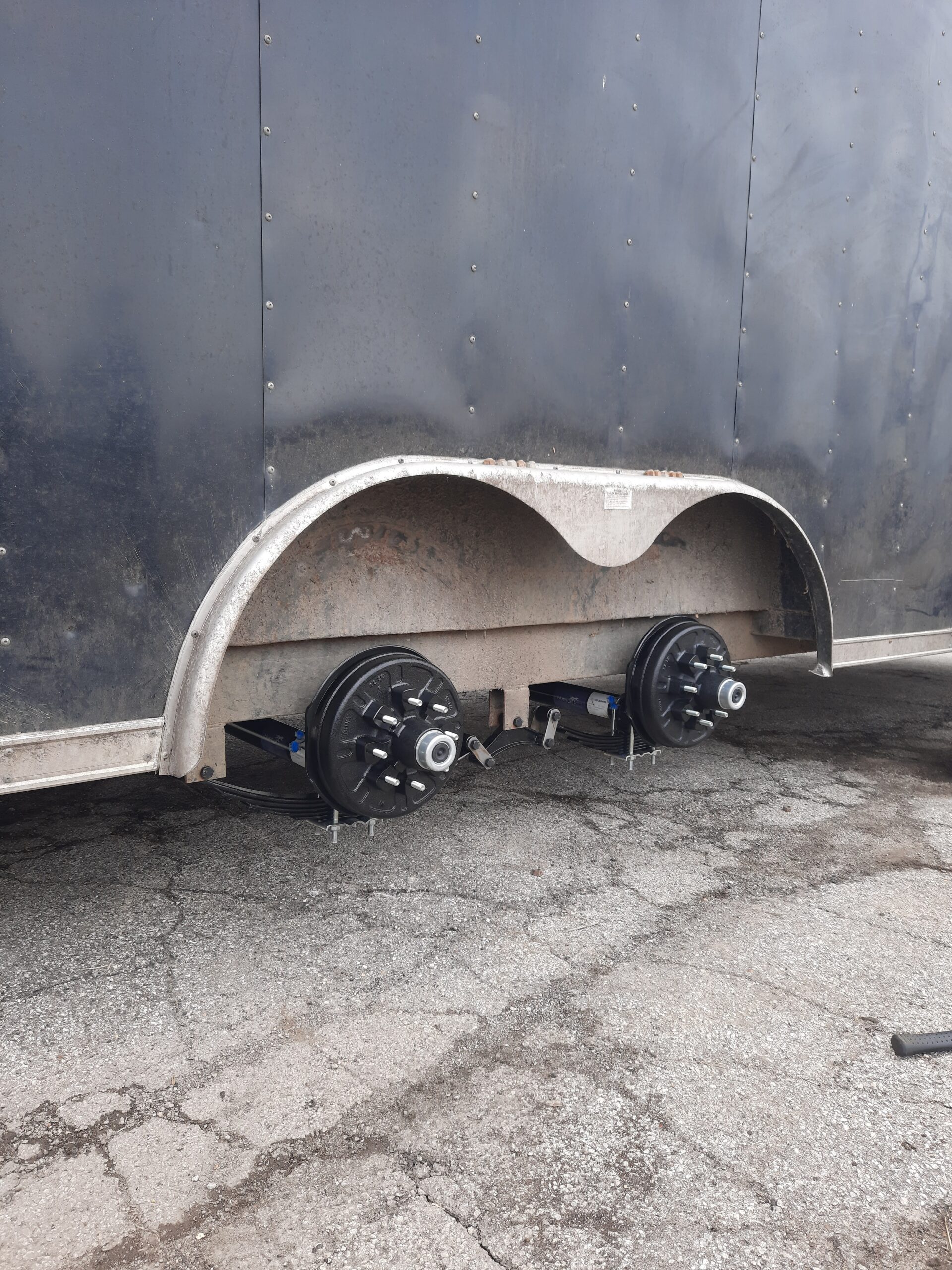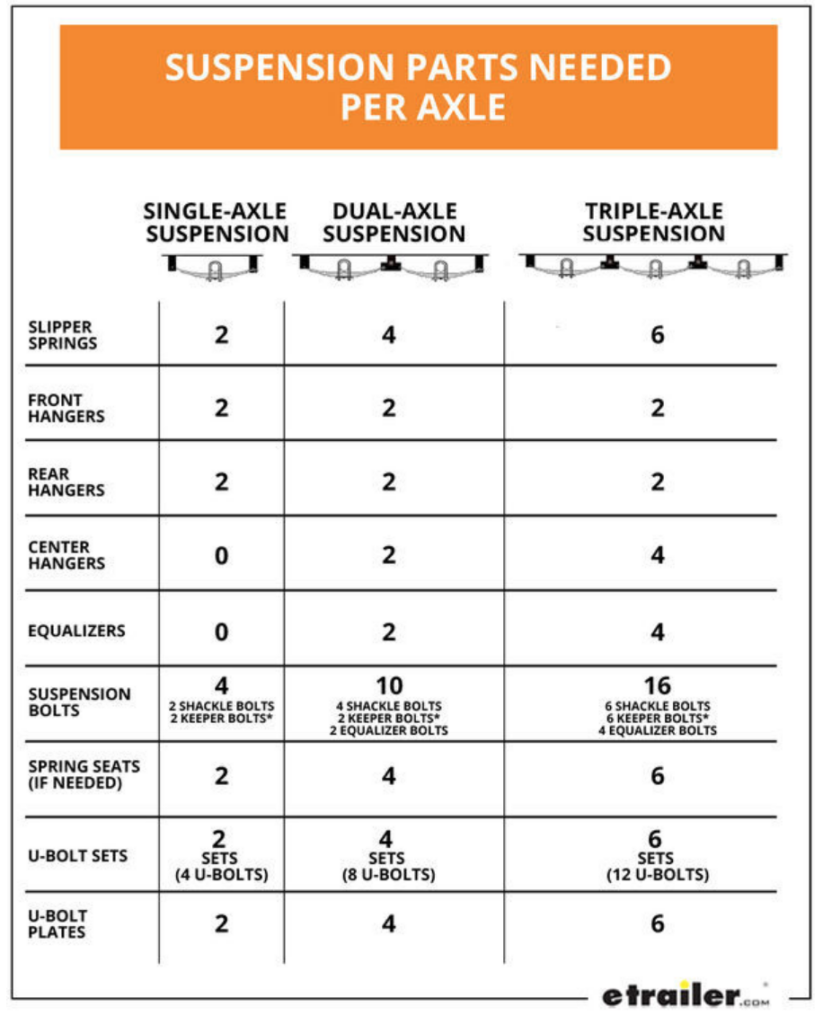This article answers the popular question – what are the pros and cons of a double eye and slipper springs system?
There are two main types of leaf spring systems – the double eye and slipper springs. To help you understand which option is better for you, first, you need to understand how both systems work and the pros and cons of each.
Double Eye Springs
The name “Double eye” was given this spring because of the way it was constructed. Each end of the double-eye spring is rolled to create an ‘eye’ or a bolt hole. The spring is bolted into the front and rear hangers. The springs are connected in the center by shackle straps and an equalizer.
Pros
- Smoother and quieter than slipper springs
- More cost-effective
- Better weight distribution than slipper springs
Cons
- More moving parts, result in higher tendency of parts to wear down
- Limited weight capacity
- Shorter lifespan
Slipper Springs
Slipper springs have an eye on the front of the spring and an arched open end on the rear, allowing the spring to “slip” on the equalizer or rear hanger.
Pros
- Fewer bushings* to wear down
- Larger bushings
- Available in higher capacity options
*Suspension bushings are cushions that are mounted on steering joints and vehicle suspension to control movement in the joints, absorb road bumps, and reduce vibrations and noise.
Cons
- Noisy due to metal on metal
- Less effective weight distribution
Spring Replacement Options by BlueSwift Axles
Your trailer’s suspension is one of those components of your trailer that you often overlook until you run into problems. Your trailer’s springs absorb shock from the roadway and it keeps your trailer level. Your suspension gives you a smooth ride and reduces wear and tear on your frame and tires. When your suspension becomes worn down or damaged, you will immediately notice a difference in the way your trailer hauls. Explore our spring replacement options and find replacements that are right for you. If you need assistance selecting your spring contact our experts at BlueSwift at 515-606-1943.
This diagram from ETrailer tells you how many suspension parts you need per axle.

